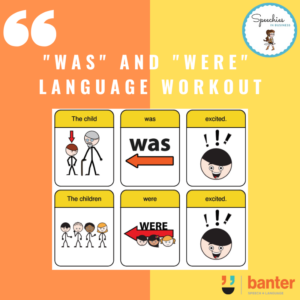(L422) Was and Were Language Mega Workout
$9.00 including GST
Before the age of around 5 years, typically developing children start to make sentences using different forms of the copula verb “to be” in past tense: “was” and “were”.
Many people – including lots of people learning English as a second language and people with language disorders – have difficulties using words like “was” or “were” in sentences.
This 81-page non-preparation pack is designed to provide people in this situation with focused, scaffolded practice of the form, using regular and irregular plurals.
Description
“Was” and “were”: “He was running. You were running. The runners were fast. If she were running, she would win.”: Joss the Robot presents a language convention mega workout!
Before the age of around 5 years, typically developing children start to make sentences using different forms of the copula verb “to be” in past tense: “was” and “were”. These words can act as either main or auxiliary verbs, e.g.:
- As a main verb: “The girl was happy.” “The girls were happy.”
- As an auxiliary verb: “The boy is running.” “The boys were running.”
The verb “was” is used when speaking and writing in:
- the first person singular past, e.g. “I was happy.”, “I was jogging”; and
- the third person singular past, e.g. “He was happy.”, “Kate was skipping”.
The verb “were” is used when speaking and writing in:
- second person singular past: “You were dancing.”
- plural past: “They were dancing.”; and
- past subjunctive: “If we were to go to the party, we could dance all night.”.
Many people – including lots of people learning English as a second language and people with language disorders – have difficulties using words like “was” or “were” in sentences.
This 81-page non-preparation pack is designed to provide people in this situation with focused, scaffolded practice of the form, using regular and irregular plurals.
This pack uses both pictures and orthography, making it suitable for children or adults.

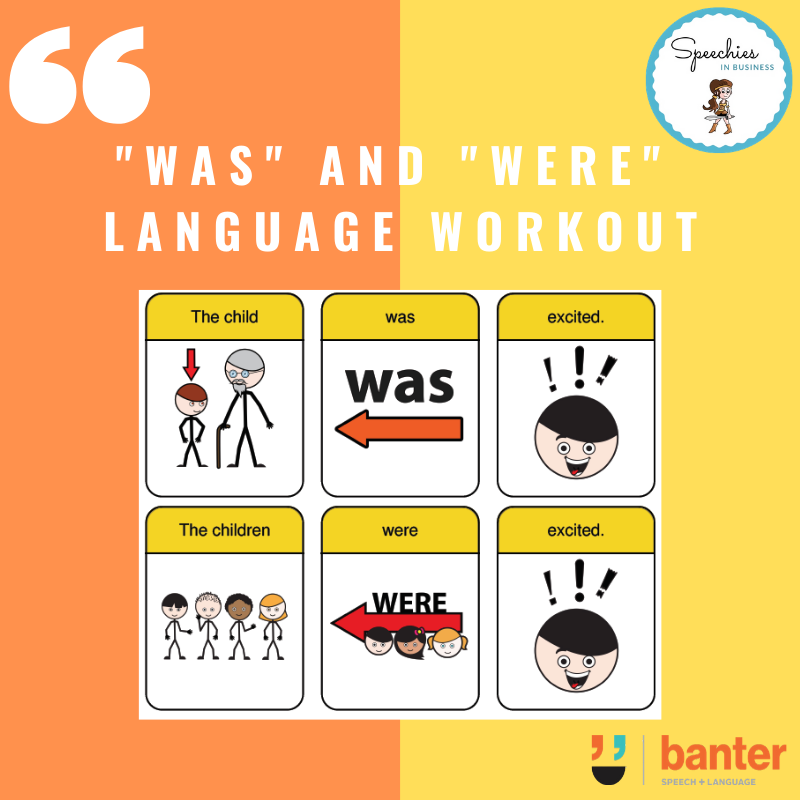




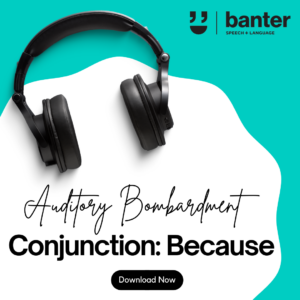
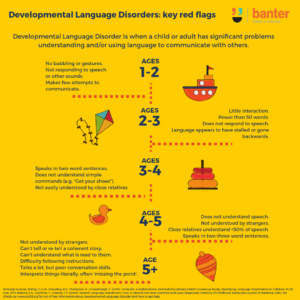
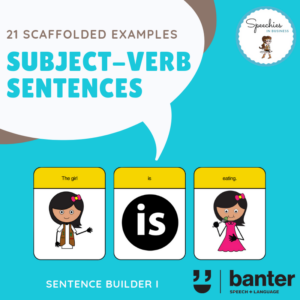
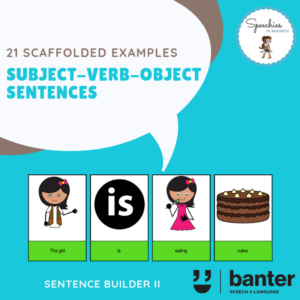
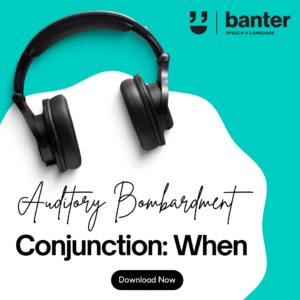 (L242) Conjunctions - When (Auditory Bombardment)
(L242) Conjunctions - When (Auditory Bombardment) 